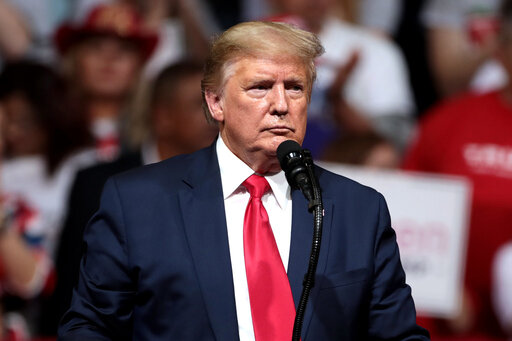President Donald Trump has described nationals of Afghanistan, Myanmar, Chad, Congo, Equatorial Guinea, Eritrea, Haiti, Iran, Libya, Somalia, Sudan, and Yemen as potential threats to the United States.
He therefore signed a proclamation on Wednesday, June 4, 2025, banning nationals from the 12 countries from entering the U.S., saying:
“We will not allow people to enter our country who wish to do us harm.”
According to a video posted on X, he said all nationals from the affected countries are “fully” restricted from entering the U.S. The latest full restriction does not exclude government officials, including their presidents, although he didn’t mention any exceptions in his proclamation. Chad, one of the countries affected by the ban, has also retaliated by banning U.S. nationals from entering the African country.
His reasons
He said Iran, Chad, and 10 other countries are subject to the most severe restrictions because they harbour a “large-scale presence of terrorists,” while others didn’t cooperate on visa security, had an inability to verify travellers’ identities, inadequate record-keeping of criminal histories, and high rates of visa overstays in the U.S.
7 countries slammed with partial restriction
Also, nationals of Burundi, Cuba, Laos, Sierra Leone, Togo, Turkmenistan, and Venezuela will be partially restricted. All restrictions will take effect from Monday, June 9, 2025, at 12:01 a.m. EDT.
Trump said:
“We cannot have open migration from any country where we cannot safely and reliably vet and screen those who seek to enter the United States.”
Trump affirmed his administration’s commitment to review the list to add new countries that “pose” a threat to the security and safety of the U.S.
The latest proclamation is part of an immigration crackdown that he launched at the start of his second term, pledging to restrict immigrants from the Gaza Strip, Libya, Syria, Yemen, and “anywhere else that threatens our security.”
He had earlier issued an executive order on January 20, 2025, requiring intensified security vetting of any foreigners seeking admission to the U.S. to detect national security threats.
Trump had also faulted the “vetting and screening information” of the affected countries, describing it as “deficient,” making it possible for terrorists to carry out their nefarious acts.


